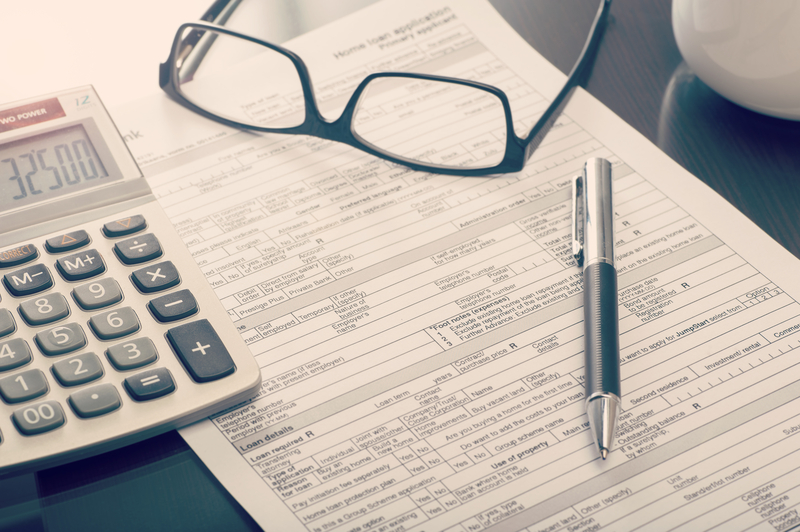
Housing Affordability - What Percentage of Income should go to Mortgage? What the Experts Say...
How much of your income should go to your monthly mortgage payment? You're not alone. For a homeowner or someone who is just looking to buy a place of their own, the decision about how much house you can really afford is one of the most important financial choices that you'll ever have to make. Best case scenario, those guidelines will tell you a specific answer, but more often than not, financial situations are individualized and the determination of how so, can be difficult. Here is what some experts say on how to save up for the house of your dreams. FDIC Credits and Loans — How Much Mortgage Can I Benefit?
Try our AI chatgpt mortgage sim - How to Qualify for a Mortgage Sim - Read more about, How to Qualify for a Mortgage - fun, free, easy!
Most of the banks and lenders use the same formulas to calculate mortgage affordability - Chase - What percentage of your income should go towards your mortgage?
The 28/36 Rule
Among the most frequently cited guideline is the 28/36 rule. This rule states that your monthly mortgage repayments (principal, interest, taxes, and insurance) should not surpass 28% of your gross monthly income. Also, do not spend more than 36% of your gross monthly income on all your combined monthly debt payments, including your mortgage as well as all of your other debts like car loans, student loans, and credit card balances.
For example, you are in a household with a combined gross income of $6,000 per month. In other terms, as per the rule 28/36 your monthly mortgage payment will be maximum of $1,680 (28% * $6,000 = $1,680), and your total monthly debt allows up to $2,160 (36% * $6,000 = $2,160). Those figures are a good starting point for how much vacay you english to be able to afford within of your mortgage payment. Remember, these are ceilings, not targets. Depending on your other financial goals and obligations, you may wish to keep your mortgage payment well under the 28% mark.
Reinhardt's 25% rule:
Some financial experts argue that the 28/36 rule is too generous and could encourage homeowners to buy more home than they really can afford, so much so that they become "house poor" with no cash left over after paying their mortgage, other housing expenses (taxes, insurance) and other bills to cover other important expenses and save money for other goals. Instead, they subscribe to a more rigorous 25% rule. Under this rule, your total mortgage payment should not be more than 25% of your take-home pay (your income after tax and other deductions) Therefore, if your family makes $5,000 each month, you could afford a $1,250 home mortgage payment. Advocates of the 25% rule would tell you that it's better to budget just 25% for housing to leave more money left over for all the other big-ticket items on your list, like food, electricity, health care, and entertainment. It also gives them the opportunity to save for retirement, save for a rainy day, and plan for other future financial goals.
Here's a Housing Affordability Ccalculator from google to help you figure out payments.
What Affects Mortgage Affordability
While these rules are good guides, you should also take a broader view of your financial picture when deciding how much to spend on a home loan. A few key things to labor over when hitting open houses include:
- Down payment: How much you will put down can determine how much you need to borrow and what your monthly mortgage payment will be. Although 20% is generally referred to simply because the typical down payment, a lot of lenders allow for lower down payments — possibly even as low as 3%. However, a smaller down payment equates a larger loan amount and thus, higher monthly payments.
- Interest rates: Interest rates on mortgages have a big impact on your monthly payment and overall borrowing costs. A fraction of a percentage point can cost or save you thousands of dollars with each mortgage payment.
- Other debts: Finally, if you have other debt obligations, like student loans, car payments or credit card balances, they will definitely color how much you can comfortably afford to spend on a mortgage. These debts will be taken into consideration by lenders when analyzing your loan application and determining your debt-to-income ratio.
- Lifestyle and other costs: Remember that with buying a house there are all the other expenses involved in owning a home, such as property taxes, home insurance, maintenance, repairs, and renovations. You'll also have to make sure your mortgage payment doesn't leave you too little money to pay for other key expenses, including groceries, healthcare, childcare, transportation, and discretionary spending. The Must-Dos Before Applying For A Mortgage
How to buy a home
Finally, the bottom line is to keep your housing costs as low as possible income % wise (without eating catfood). In general, you should keep your housing costs as low as possible, while still enabling you to purchase a home that meets your needs.
Shop Around for a Mortgage: Find the Best Rates & Save Thousands
Do your due diligence on a potential home purchase before placing an offer. Nobody is forcing you to max out your budget and upgrade to a pricier home. Don't forget your ultimate goal is to find a mortgage payment that you can comfortably make while still having the financial bandwidth to live life and put money away for the present.
If you're not certain of where to begin, look around the website or perhaps enroll to take the homebuyer education course. It will help you answer your questions about how to buy a home. Carefully planning and making sure to buy a company within your means can make your dreams come true as a homeowner and put your financial wellbeing at risk.






